

How bright can the flagship phone in 2024 be?
How much change can the peak brightness be brought to 5000nits for "outdoor use" and "daily viewing"?
This issue of Jiguo Creative Column will give you a glimpse of the answer through the brightness performance of 43 flagship mobile phones on the beach in Sanya, and see how it enters the "post-OLED era" under strong outdoor sunlight. How flashy can a mobile phone screen be?

Since the second half of last year, several domestic manufacturers such as Honor, OnePlus, and Xiaomi have started a brightness relay race on their flagship models. The peak brightness of mobile phone screens It has been soaring all the way, from the cap of 3000 nits to 5000 nits.
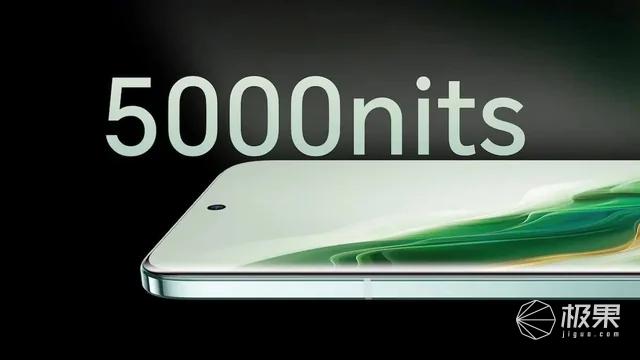
But, what is the use of this to us?
To get the answer to this question, we must first clarify the brightness of the mobile phone, from 0 to the so-called peak brightness advertised, and what scenes it is intended for.
First of all, the phone itself will have a brightness bar that can be manually adjusted. This brightness is currently generally between 200-700 nits. In most scenes, this brightness range is enough for us to comfortably read the screen content.

#The maximum value of this brightness is what we call "manual maximum brightness".
On top of the manual maximum brightness, the phone also has "sunlight-induced brightness". This part of the brightness is usually automatically released when we use the phone outdoors to ensure that we can also see the brightness under strong sunlight. Read the words on the screen clearly.
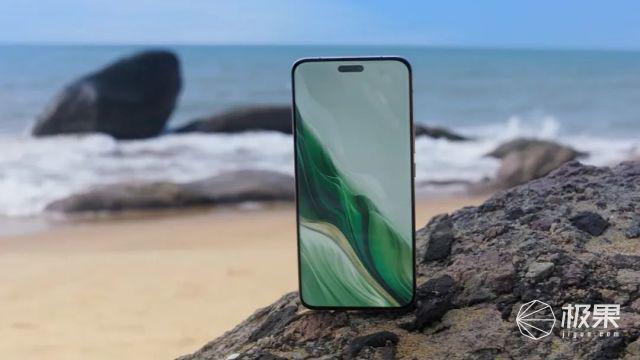
The brightness we mentioned above are all global brightness, which is for the entire mobile phone screen. It affects whether you can read the screen comfortably.
The peak brightness we mentioned at the beginning is actually local brightness, targeting a small part of the screen. Because only a small part needs to be lit, its brightness will be higher than "manual maximum brightness" and "global maximum brightness" are higher. It is suitable for scenes where only a small area is particularly bright and the remaining large screen brightness is not high.
Yes, it is aimed at HDR videos that are considered the "future", including HDR10, HDR10, and Dolby Vision, which everyone may be more familiar with.
These three parts of brightness are all important and are directly linked to the quality of the OLED screen.
Generally speaking, the full-screen brightness reflects the power consumption of the luminescent material used in the screen, while the peak brightness roughly shows the luminous efficiency and lifespan of the material. The "peak brightness" of the screen is higher, and the global brightness will be higher accordingly. The "peak brightness" of the screen is too high, and the global brightness will hardly have an eye-catching performance.
However, at present, what we often see in major mobile phone conferences and promotional pages are basically only the "peak brightness" value, and the other two numbers are basically invisible.

Why is this so?
Based on our various needs for brightness when using screens indoors and outdoors, Mr. Jiguo made a bold speculation - "Is it because today's mobile phones are bright enough under the sun? ?"
In order to verify whether this speculation is accurate, we took 43 new flagship mobile phones released in recent years to the south of the country - Sanya, where the light intensity is extremely high, and conducted an experiment of "hard sunlight".

# In order to allow the mobile phones to face the test of the sun at the same time, we numbered them one by one and put them into a giant sunflower to serve as a flower plate.
After turning off automatic brightness adjustment and manually increasing the brightness of each phone to the maximum, we played the same HDR white point video on these phones.
Under sunlight, the brightness of the OLED screen will be fully stimulated, but at the same time, mobile phones are also burdened with heat dissipation pressure. It is not certain whether they can achieve the advertised peak brightness level.
Ji Guojun To the naked eye, the difference between the white dots on the black background is a bit like looking for garlic yellow among leek yellow. It is difficult to distinguish. But as soon as I put it on the brightness tester, the difference was immediately apparent.
According to the actual measurement, the measured brightness of more than half of the machines does not exceed 2000 nits, which is consistent with their nominal peak brightness performance; there are only 3 machines whose measured brightness can reach/exceed 5000 nits.
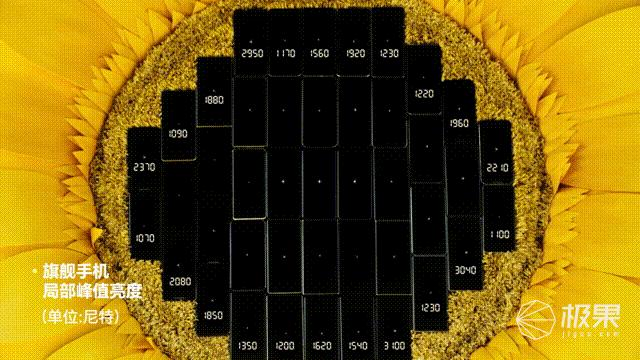
These 3 machines are all from the same series from the same manufacturer - the Honor Magic6 series. The brightest one in the middle is Honor's latest new phone - Honor Magic6 RSR Porsche Design Edition. The two models on the left and right are Honor Magic6 and Honor Magic6 Pro respectively.
The local "peak brightness" performance is uneven, so what about the global brightness performance? Would the results have been different?
Based on this idea, we changed the test material to a full-screen pure white video and tested it again.
Since the video this time is all white, the power consumption of OLED for light emission will actually be greater. In addition, we conducted it in Sanya, a place where the light intensity is the first echelon level in the country. Testing, it can be said, the real challenge has just begun.
This time, there is no need for a brightness meter. The differences between the closely connected mobile phone screens are very intuitive, and the level can be said to be very uneven. The three Honor Magic6 series phones in the center are still the brightest, and the effect is very stunning. The screen looks the whitest, while the surrounding phones are more or less dark.
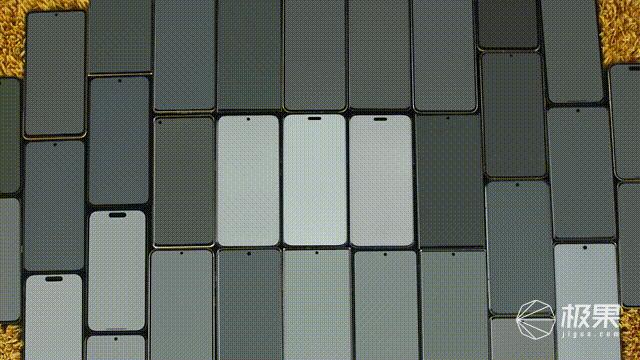

Behind such experimental results, how does Honor make the OLED screen so bright? Does this screen mean that domestic screens are about to enter a period of rapid brightness development?
Let’s take it step by step, starting with the first question.
The technology used by Honor on this mobile phone is called Tandem dual-stack series OLED architecture. It is a technology used in car-grade screens and is often used in the screens of luxury cars.
This technology is actually a method of connecting two "OLED light-emitting layers" in series through a "connection layer" so that they can emit light at the same time to increase the brightness of the OLED and extend its service life.
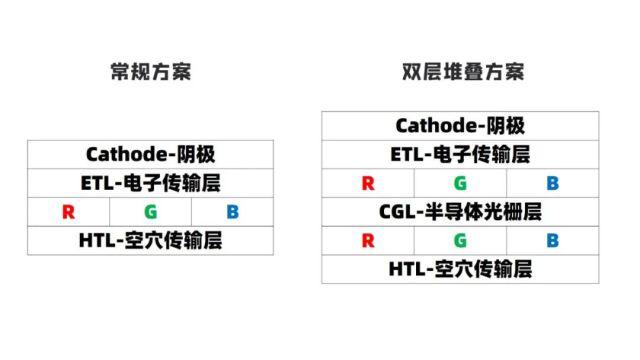
If one light is not bright enough, turn on another one. This principle is very simple and sounds very effective, but you have to move it from the car to your mobile phone. But it's not easy.
First of all, the viewing distance of mobile phone and car screens is different. The distance when viewing mobile phones is closer, so the requirements for the fineness of screen display will be higher, which means that the screen pixels of mobile phones will be arranged more closely. , the distance between each pixel is closer.
We know that OLED is pixel-level self-illumination. For ordinary OLED, there is an OLED light-emitting point behind each pixel. For Tandem OLED, one pixel = two light-emitting points.
Both these two light-emitting points need to be driven by circuits. Since the distance between the two OLED light-emitting layers is not far, it is likely that the driving circuits will interfere with each other between the upper and lower light-emitting layers. The problem affects the luminous effect and brightness adjustment effect of the mobile phone screen. How to handle the circuit relationship between the two light-emitting layers in a smaller space and avoid the upper and lower OLED drive circuits from interfering with each other is quite difficult.
At the same time, due to the extreme requirements of "thinness" for mobile phones, the anti-interference "device" between the two layers of OLED must be as thin as possible, which actually poses problems to design and processing.
Honor’s new phone adopts the latest laminated Oasis eye protection screen technology, which successfully solves the above problems and avoids the "crosstalk" problem between OLED pixels through clever "isolation" hardware. The Tandem dual-stack series OLED architecture is implemented on the mobile phone.

At the same time, this screen also uses BOE’s new K2 luminescent material. Two layers of materials with higher luminous efficiency finally achieve a breakthrough in global brightness and peak brightness. Recording performance, we gained double the brightness and 4 times the lifespan.
Behind this, it involves in-depth customization of the OLED structure and driving method, which requires manufacturers to have a deeper understanding and thinking about OLED brightness in addition to parameters.
Judging from the face-to-face comparison under the strong light of Sanya, compared with the screens of new overseas brand phones, this first mobile phone Tandem laminated screen created by Honor and BOE has a higher brightness in this competition. We are indeed at the forefront of the road. In addition to brightness, whether this domestically produced good screen can bring us more surprises, please stay tuned for our next reveal interview program.
This article was originally created by Jiguo user emily
The above is the detailed content of No need to frantically pull the brightness bar outdoors? This wave of mobile phone tests will help you get the king of domestic screen brightness. For more information, please follow other related articles on the PHP Chinese website!




